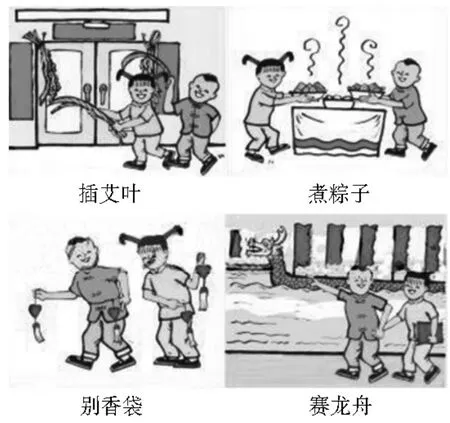系统梳理,总结规律,夯实基础,提高技巧
——谓语动词的专题复习策略
河南 昝亚娟
笼统地说,英语学科复习备考主要包括:基础知识、听力、阅读和写作四个方面。在英语基础知识中,谓语动词属于主干知识,也是高考考查的重点和热点。教师应首先帮助考生熟练掌握重点知识、精准把握考点,然后才能通过系统的训练,帮助考生提升应试能力。
一、谓语动词部分必备基础知识清单
根据《2018年普通高等学校招生全国统一考试大纲(英语)》,高考对谓语动词的考查内容包括十种常用的时态、被动语态和主谓一致。虽然考纲中没有列出将来完成时和过去完成进行时,但是这两种时态也多次出现在高考试题中。因此,考生应能在具体的语境中正确使用十二种常用的时态。
此外,有些谓语部分含有情态动词,有的句子采用了虚拟语气,因此复习谓语动词时,应兼顾情态动词和固定句式中的虚拟语气。请看下面的谓语动词考点思维导图:
二、高考试题中的谓语动词考点分布
(一)语法填空中的谓语动词考点
1.全国Ⅰ卷中的谓语动词考点
①When fat and salt 64 (remove) from food, the food tastes as if it is missing something. (2017)
②Fat and salt are very important parts of a diet...Fast food 67 (be) full of fat and salt; ...(2017)
③So it was a great honour to be invited backstage at the not-for-profit Panda Base,... I 62 (allow) to get up close to these cute animals at the 600-acre centre. (2016)
④It was raining lightly when I 61 (arrive) in Yangshuo just before dawn. (2015)
⑤Yangshuo 67 (be) really beautiful. (2015)
⑥In 1969, the pollution was terrible along the Cuyahoga River near Cleveland, Ohio. It 61 (be) unimaginable that ...(2014)
(Keys: ① are removed ② is ③ was allowed ④ arrived⑤is ⑥was)
从以上试题可知,近四年全国Ⅰ卷中谓语动词的主要考点是:主谓一致、一般现在时、被动语态、状语从句中的时态和一般过去时。
2.全国Ⅱ卷中的谓语动词考点
①In 1863 the first underground passenger railway in the world opened in London...Steam engines 65 (use) to pull the carriages... (2017)
②Later, engineers 68 (manage) to construct railways in asystem of deep tunnels(隧道), which became known as the Tube. (2017)
③Leaving the less important things until tomorrow 63(be) often acceptable. (2016)
④ ...whatever it is, 70 (make) sure it’s a relief from daily stress rather than another thing to worry about. (2016)
⑤...they warm up again for the night. This cycle 68(go) day after day: ... (2015)
⑥...I had a good view of the sidewalk. A boy on a bike
65 (catch) my attention. (2014)
(Keys: ① were used ② managed ③ is ④ make ⑤ goes⑥caught)
从以上试题可知,近四年全国Ⅱ卷中谓语动词的主要考点是:主谓一致、被动语态、一般过去时、一般现在时和祈使句。
3.全国Ⅲ卷中的谓语动词考点
① Sarah 63 (tell) that she could be Britain’s new supermodel, earning a million dollars in the next year. (2017)
②But at the moment, school 69 (come) first. I don’t want to get too absorbed in modeling. (2017)
③Truly elegant chopsticks might 62 (make) of gold and silver with Chinese characters. (2016)
④Confucius believed knives would remind people of killings and 69 (be) too violent for use at the table. (2016)
(Keys: ① was told/has been told ② comes ③ be made④were)
从以上试题可知,近两年全国Ⅲ卷中谓语动词的主要考点是:被动语态、主谓一致、一般现在时和一般过去时或现在完成时。
(二)短文改错中的谓语动词考点
1.上下文的时态一致
①...,I entered my second year of high school and become a new member of the school music club.(2017全国Ⅲ卷)
【解析】前句为一般过去时,讲述本人高中时的经历,故把become改为became。
②It is always crowded with customers at meal times.Some people even had to wait outside.(2016全国Ⅰ卷)
【解析】前句为一般现在时,介绍叔叔经营的小餐馆的情况,故把had改为have。
③However, my parents didn’t seem to think so. They always tell me what to do and how to do it.(2016全国Ⅲ卷)
【解析】前句为一般过去时,故把tell改为told。
④When I was a child, I hoped to live in the city. I think I would be happy there.(2015全国Ⅰ卷)
【解析】本句讲述儿时的愿望,因前句为一般过去时,故把think改为thought。
⑤When I look at this picture of myself, I realize how fast time flies. I had grown not only physically, ...(2017全国Ⅲ卷)
【解析】前句为一般现在时,此句应用现在完成时,故把had改为have。
⑥There are three lessons in the morning and two in the afternoon. We didn’t need to do so much homework.(2014全国Ⅱ卷)
【解析】前句用一般现在时介绍学校的情况,此句也应用一般现在时,故把didn’t改为don’t。
2.时态
Since then...we had been allowing tomatoes to self-seed where they please.(2014全国Ⅰ卷)
【解析】本句含有时间状语since then“自从……起”,应用现在完成进行时,故把had改为have。
3.谓语动词的形式
①The instructor kept repeating the words,“Speed up!”“Slow down!”“Turning left!”(2017 全国Ⅰ卷)
【解析】引号中的内容都是祈使句,应用动词原形。故把Turning改为Turn。
②We must found ways to protect our/the environment.(2015全国Ⅰ卷)
【解析】情态动词之后应跟动词原形,故把found改为 find。
③Tony was scared and begun to cry.(2015全国Ⅱ卷)
【解析】本句含有两个谓语动词,第一个是系表结构was scared,and之后应用一般过去时,故把begun改为began。
④A woman saw him crying and telling him to wait outside the shop. (2015全国Ⅱ卷)
【解析】本句中的两个谓语动词是并列关系,第一个是saw,所以and之后也应用一般过去时,故把telling改为told。
⑤We can lie on the grass for a rest, or sat by the lake listening to music. (2014全国Ⅱ卷)
【解析】在情态动词之后应跟动词原形,故把sat改为sit。
4.状语从句的时态
①...once I started the car, my mind goes blank.(2017全国Ⅰ卷)
【解析】once引导的时间状语从句为一般过去时,主句也应用一般过去时,故把goes改为 went。
②When summer came, they will invite their students to pick the fresh vegetables!(2017全国Ⅱ卷)
【解析】因为主句为一般将来时,故when引导的时间状语从句应用一般现在时,故把came改为 comes。
5.语态
①Every day he makes sure that fresh vegetables and high quality oil are using for cooking.(2016全国Ⅰ卷)
【解析】根据句意,主语“fresh vegetables and high quality oil”和谓语动词use之间为被动关系,应用被动语态,故把using改为used。
②Lots of studies have been shown that global warming has already become a very serious problem.(2015全国Ⅰ卷)
【解析】根据语境,本句应用主动语态,故把been去掉。
6.主谓一致
My dream school look like a big garden.(2014全国Ⅱ卷)
【解析】本句的主语为单数,应把look改为looks。
三、谓语动词的易错点
由于考生对谓语动词的基础知识掌握得不扎实,在时态和语态方面可能出现一些错误。根据本人的教学经验,总结出考生的易错点如下:
(一)考生易错的几种时态
1. 一般过去时
(1)用于陈述过去的事实。例如:
The publication of Great Expectations, which was both widely reviewed and highly praised, strengthened Dickens’status as a leading novelist.(2017江苏卷)
(2)表示在过去某个时间发生的动作或状态,通常与表示过去的时间状语连用,如:yesterday, last night/week/month/year/Sunday, in 1990, two days ago等。例如:
—Did you call that company to see how they think of our product yesterday?
—Yes. They are happy with it.(2017北京卷)
(3)表示过去习惯性的、经常发生的动作或状态, 常和often, always等表示频度的时间状语连用。
He was always late for school last week.
(4)在下面几种情况下,常用一般过去时:
①在时间、条件、让步状语从句中,用一般过去时代替过去将来时。例如:Mum said we would stay at home if it rained tomorrow.②表示说话之前存在的某种情况,表示“刚才,在过去”之意。例如:
—Do you know that Jane is in hospital?
—Oh, really? I didn’t know. I will go and visit her.
③某动作或状态在过去持续了一段时间并结束,其影响已经结束。例如:
My dad learned English for three years, but he has forgotten most of it.
My cousin went to Canada two years ago. He worked there for a few months and then went to America.
④用疑问词when提问过去发生的事情。例如:
—When did you travel to Hainan Island?
—During last winter holiday.
⑤在It is/has been +时间段+since状语从句中,从句用一般过去时。例如:
It has been a long time since Dr. Jackson joined the Chinese Society.
⑥在以表示动作转移的副词开头的倒装句中。例如:
In came the teacher.
Down came the rain.
(5)在表示虚拟语气的句式中。
①It is high time that...句式,表示“真该做某事了”。例如:
It is high time that we did something to solve the problem.
②在would rather和 would prefer 之后的从句中,表示说话人的一种愿望。例如:
Mary would rather that they met each other more often.
George is going to talk about the geography of his country, but I’d rather he focused more on its culture.
③在wish后的从句中,表示与现在事实相反的愿望。 例如:
I wish I had a large house with a beautiful garden!
④在as if /though 从句中,表示与现在事实相反的一种假设,意为“好像……;仿佛……”。例如:
Don’t handle the vase as if it were made of steel.
2.现在完成时
(1)表示某个过去发生的动作对现在造成的影响。重点强调事情对现在造成的影响。常用的副词:just,already, yet, never, before。例如:
I have read half of the English novel, and Il’l try to finish it at the weekend.(2016北京卷)
(2)表示某个动作从过去开始,持续到现在。常用的时间状语:since+过去的某一时刻/一般过去时的句子,since then, ever since, so far, lately, recently, in recent years, up to/till now, in/over/during the last/past few days/weeks/months/years/decades, for+一段时间, for ages/years等。from then on呼应一般过去时。例如:
In the last few years, China has made great achievements in environmental protection.(2015北京卷)
(3)一些固定句式中常用现在完成时:
①在This/It is the first/second time that...句型中。例如:
This is the first time that Tim has been in China.
②在形容词最高级+名词+定语从句中。例如:
This is the most exciting story that I have ever read.
③在It is/has been+时间段+since从句中,表示“自……以来,时间过了……”。例如:
It has been three years since Peter came to China.
④在条件、时间、让步状语从句中,可用现在完成时。例如:
I will play with you as soon as I have finished my homework.
3.现在完成进行时
很多考生会把现在完成进行时与现在完成时的用法混淆。其实,它们的用法有所不同:现在完成进行时(have/has been doing)表示某动作从过去开始,持续到现在尚未结束,仍在进行中,并有可能持续下去,强调动作是未完成的。而现在完成时(have/has done)强调一个完成的动作对现在造成了影响。现在完成时陈述事实,现在完成进行时表感情色彩。例如:
—Excuse me, which movie are you waiting for?
—The new Star Wars. We have been waiting here for more than two hours. (2016北京卷)
Dashan, who has been learning crosstalk, the Chinese comedic tradition, for decades, wants to mix it up with the Western stand-up tradition. (2016江苏卷)
4.过去完成时
(1)过去完成时表示“过去的过去”。一件事情在过去发生,另一件事情也发生在过去,而且其中的一件事比另一件事发生的更早,先发生的事情就用过去完成时。例如:
Silk had become one of the primary goods traded along the Silk Road by about 100 BC. (2016浙江卷)
—Did you have difficulty finding Ann’s house?
—Not really. She had given us clear directions and we were able to find it easily.(2015北京卷)
(2)过去完成时通常与宾语从句、状语从句或定语从句连用。例如:
Just as I got to the school gate, I realized I had left my book in the cafe.(2015安徽卷)
注意:常与过去完成时连用的时间状语:before+过去的时刻, by then, by that time, until then, by the end of +过去的某一时刻以及by the time+一般过去时的句子。
(3)在下列固定句式中,通常用过去完成时。
①Scarcely/Hardly/Barely...when..., no sooner... than...表示“一……就……”。第一个分句通常用过去完成时,采用倒装语序,第二个分句用一般过去时。例如:
Scarcely/Hardly/Barely had they set out when it began to rain.
No sooner had I been seated than the play began.
②在“This/It was the first/second time +that”句型中。例如:
President Richard Nixon visited China in 1972. It was the first time that he had come to China.
③在It was/had been+时间段+ since 从句中。例如:
She enjoyed the party last night. It was ten years since she had enjoyed herself.
④表示愿望、打算一类的动词,如:hope, expect,mean, intend, want, suppose等,用过去完成时表示过去未曾实现的愿望和意图。例如:
We had hoped to see more of Shanghai, but we had no time.
I had meant to help you, but I was too busy at the moment.
⑤在wish, as if/though, would prefer, would rather 后跟的从句中,从句陈述的情况与过去的事实相反,谓语动词用“had+过去分词”。 例如:
He behaved as if nothing had happened.
I’d rather you had not given up the job then.
(二)语态方面的错误
1. 如果一个句子的主语是某动作的发出者,应用主动语态。例如:
People have better access to health care than they used to,and they’re living longer as a result.(2017 北京卷)
I wasn’t able to hide my eagerness when I asked, “What do you wish me to do now?”(2015湖南卷)
2.如果一个句子的主语是动作的承受者,则用被动语态。例如:
In the 1950s in the USA, most families had just one phone at home, and wireless phones hadn’t been invented yet. (2017北京卷)
It is reported that aspace station will be built on the moon in years to come.(2015安徽卷)
To my delight, I was chosen from hundreds of applicants to attend the opening ceremony.(2015福建卷)
3.在下列几种情况下,常用主动语态,而不用被动语态:
(1)一些表示状态的动词,如:have, own, cost, last,contain, fit, look like, belong to, consist of 等。例如:
Who does this laptop belong to?
The committee consists of ten members.
(2)表示“开始,结束”和动作转移的动词:begin,finish, start, open, close, stop, end, shut, run, move等。用主动形式表示被动意义。例如:
The party had hardly started when Sue left.
The new hospital opens on July 1st.
(3)系动词, 如:look, sound, feel, smell, taste, appear,seem, go, prove, turn, stay, become, fall, get, grow, keep, turn out等后常接形容词或名词,构成系表结构。例如:
The apple pie tastes too sweet.
The examination turned out very easy.
(4)某些动词,如:read, write, translate, record, lock,shut, open, wash, clean, run, sell等,用在“主、谓、状”结构中,多与副词连用,表示主语属性和特征。例如:
This poem reads well.
The door locks easily.
Does this cloth wash well?
(5)少数动词用于进行时,主动形式表示被动含义,如cook,hang等。例如:
The meat is cooking.
My coat is hanging behind the door.
四、谓语动词部分备考策略
在专题复习阶段,考生需要复习的内容很多,时间很紧。所以进行系统复习时,做到突出重点、突破难点至关重要。笔者认为,教师应从以下几个方面做起:
1.系统梳理知识,构建知识网络
系统地梳理知识,帮助考生构建知识网络,确保考生牢固掌握主干知识,全面掌握必备基础知识。例如,在复习时,教师应帮助考生总结一般将来时的七种不同表达方法:
(1)“shall/will+动词原形”表示将来发生的动作或状态;也可表示主语临时的决断,而不是事先的计划或安排。例如:
—Dr. Jackson is not in his office at the moment.
—All right. I will call him later.(2015北京卷)
As you go through this book, you will find that each of the millions of people who lived through World War Ⅱhad a different experience.(2015湖南卷)
(2)be going to强调事先计划和安排或有迹象表明要发生某事。
We’re going to have asports meeting next week.
Look at those black clouds. It’s going to rain.
(3)现在进行时表示将来,一般是表示动作转移的动词,如:go, come, leave, start, begin, run, leave, stay, do,take等。这种情况表示事情往往是事先安排好的。
We are moving to a new flat next month.
She’s leaving early tomorrow morning.
(4)一般现在时表示将来,客观性较强, 表示按照时刻表的规定而固定不变的或比较不易变更的将来时间发生的动作。主语多是train, bus, concert, class, conference等表示事物的名词。
What time does the next train leave for Paris?
When does the concert begin?
(5)be about to do 表示很快就要发生的动作,通常不与表示将来的时间状语连用。但可与when引导的并列分句连用。例如:
I was about to argue with him, but then I realized that he was right.
Jane was about to speak when she was stopped by her sister.
(6)be to do 表示按计划或安排要发生的事。可与表示将来的时间状语连用,常含有should,can,may,must等各种情态动词的意义。在状语从句中,意为“想要,打算”,表示意图时相当于intend, want。
We are to send more people to help in work.
Are you to go there by bike or by bus?
(7)将来进行时:shall/will be doing表示将来某一时刻正在进行的动作或某段时间持续的动作。它主要表示按计划、安排将来某时将要进行或发生的动作。常与this time tomorrow, at 3 o’clock tomorrow afternoon等时间状语连用。将来进行时可代替一般将来时,表示一种已经决定或肯定的动作或情况,或表示某动作将按计划发生而未完成。用将来进行时来询问别人的计划、打算,比用一般将来时更礼貌。
I will be waiting for you at the gate at 3:00 pm tomorrow.
How long will you be staying in Paris?
2. 精讲精练,突破难点
在复习过程中,教师应尽量把课堂学习时间留给学生,让学生在具体的语境中去感知和体验,通过使用语法规则逐步发展语言技能。老师的主要任务是针对考生存在的知识上的误区和出现的错误进行针对性的指导和点拨。如果教师讲解过多,学生的练习时间不足,会造成课堂教学效率低下,达不到预期的复习目的。
3. 总结规律,化繁为简
教师应注意帮助考生总结规律,使看似复杂的学习内容简单化,这有助于学生精准地掌握知识。例如:
(1)when用作并列连词时,意为“就在此时”,常用于三个固定句式中:
①was/were doing sth. + when... 意为“某事正在发生,这时……”。例如:
I was walking in the street when I heard my name called.
② was about to do sth. + when...意为“某事将要发生,这时……”。例如:
Charles was about to leave the office when someone knocked at the door.
③ had just done sth. + when... 意为“刚刚做完某事,这时……”。例如:
I had just fallen asleep when the telephone rang.
(2)用顺口溜帮助考生记忆知识点
表示“坚持”“命令”“建议”“要求”等动词后的宾语从句常用虚拟语气。这类动词可归纳为:一个“坚持(insist)”和“敦促(urge)”、两个“命令(order,command)”、三个“要求(demand, require, request)”和四个“建议(advise, suggest, recommend, propose)”。在这些动词后的宾语从句中,常用“should+动词原形”,且should通常可省略。例如:
John insisted that he (should) go with us.
The doctor advised/suggested that grandpa (should) not smoke.
The manager requires that I (should) appear.
4. 利用经典的高考试题进行对比分析
针对考生知识上的误区,教师应选择经典的高考试题,进行对比和分析,帮助考生抓住知识的本质特征和规律,顺利解题,确保不失分。例如:
①It ______(be) the middle of the night when my father woke me up and told me to watch the football game.
②It ______(be) at midnight that they reached the camp site.
③John thinks it _______(not be) long before he is ready for his new job.
④It ______(be) a year since my uncle went abroad for further studies.
(Keys: ① was ② was ③ won’t be ④ is/has been)
【分析】以上四个句式看似复杂,其实是有规律可循的。句①含有when引导的时间状语从句,主句和从句时态应保持一致,因此空格处应填was。句②为强调句式,本句陈述的是过去的事实,句中的reached暗示空格处应填was。句③含有“It will be +时间段+before从句”,表示“过一段时间才……”。主句为一般将来时,从句常用一般现在时,因此空格处应填 won’t be。句④含有“It is/has been +时间段+since从句”,表示“自从……以来时间过了……”,主句为一般现在时或现在完成时,从句常用一般过去时,因此空格处应填is/has been。
5. 在语境中反复练习各种时态,培养语言技能
掌握语法规则的最好方法是使用。只有在交际语境中不断地使用语法规则,考生才能提升其语言技能。教师的重要任务之一就是为考生提供真实的交际语境,让考生在交际活动中运用语法规则,从而实现语言的内化。例如:让考生根据图1,写一篇英语短文来介绍中国的端午节,可以练习一般现在时的用法。又如,让考生根据图2中四幅图的顺序,写一篇英语短文讲述学校组织同学们到博物馆参观“砥砺奋进的五年”大型成就展的经历,可以练习一般过去时的用法。如果考生的基础较差,教师可以让他们把做过的高考完形填空题或英语作文范文改编成语法填空,对各种常用时态进行练习。

图1

图2
总之,只要教师明确教学目的,采用有效的教学策略,就能通过专题复习使考生构建知识网络,夯实基础,提升语言能力和掌握应试技巧,从而为考生在高考中取得好成绩打下良好的基础。

